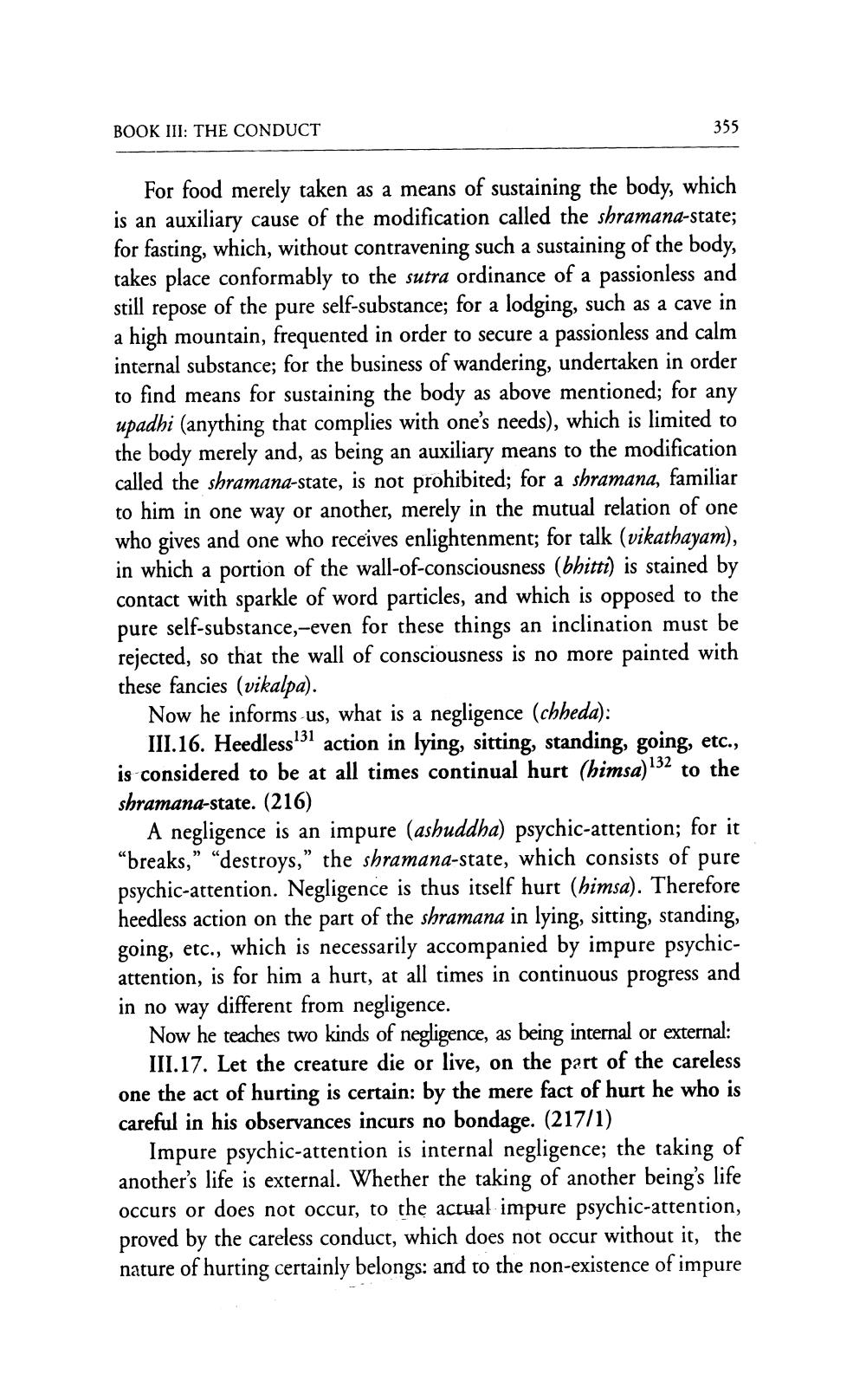________________
BOOK III: THE CONDUCT
355
For food merely taken as a means of sustaining the body, which is an auxiliary cause of the modification called the shramana-state; for fasting, which, without contravening such a sustaining of the body, takes place conformably to the sutra ordinance of a passionless and still repose of the pure self-substance; for a lodging, such as a cave in a high mountain, frequented in order to secure a passionless and calm internal substance; for the business of wandering, undertaken in order to find means for sustaining the body as above mentioned; for any upadhi (anything that complies with one's needs), which is limited to the body merely and, as being an auxiliary means to the modification called the shramana-state, is not prohibited; for a shramana, familiar to him in one way or another, merely in the mutual relation of one who gives and one who receives enlightenment; for talk (vikathayam), in which a portion of the wall-of-consciousness (bhitti) is stained by contact with sparkle of word particles, and which is opposed to the pure self-substance,-even for these things an inclination must be rejected, so that the wall of consciousness is no more painted with these fancies (vikalpa).
Now he informs us, what is a negligence (chheda):
III.16. Heedless!31 action in lying, sitting, standing, going, etc., is considered to be at all times continual hurt (himsa) 132 to the shramana-state. (216)
A negligence is an impure (ashuddha) psychic-attention; for it "breaks,” “destroys,” the shramana-state, which consists of pure psychic-attention. Negligence is thus itself hurt (himsa). Therefore heedless action on the part of the shramana in lying, sitting, standing, going, etc., which is necessarily accompanied by impure psychicattention, is for him a hurt, at all times in continuous progress and in no way different from negligence.
Now he teaches two kinds of negligence, as being internal or external:
III.17. Let the creature die or live, on the part of the careless one the act of hurting is certain: by the mere fact of hurt he who is careful in his observances incurs no bondage. (217/1)
Impure psychic-attention is internal negligence; the taking of another's life is external. Whether the taking of another being's life occurs or does not occur, to the actual impure psychic-attention, proved by the careless conduct, which does not occur without it, the nature of hurting certainly belongs: and to the non-existence of impure




